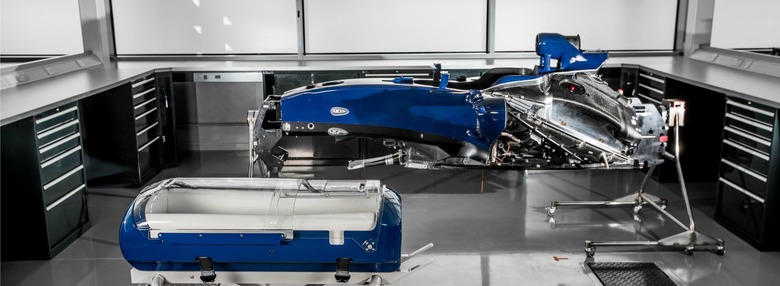Baby Pod 20 Uses Car Racing Tech To Safely Transport Newborns
While we will probably (or hopefully) experience a Krypton-like planetary destruction, transporting newly born infants in an emergency is a real-world problem. Fortunately we don't need to wish for fictional alien technology for answers. We only need to look at our own existing Formula One car racing tech for that. Advanced Healthcare Technology (AHT), which specializes in new-born infant transportation, partnered with Formula One experts Williams Group to create the future of baby pods today. And what better name to call it than the Baby Pod 20.
What do F1 racing cars and baby emergency pods have in common? Almost nothing. Except for the fact that, in both cases, fragile humans need to be protected in the most efficient and cost-effective manner possible. In the case of race car drivers, that means being protected in case of a crash. In the case of a baby, however, that means being kept warm and safe from even the slightest of forces.
The Baby Pod 20 isn't the first of its kind, even from AHT. But the problem with current pods is that they are bulky and heavy, require power to operate, and are expensive to make. While you can't quantify human life in terms of dollars, this does mean that there can only be few of such pods available in hospitals and institutions that need them.

The Baby Pod 20, in contrast, can be made at a significantly reduced cost while performing even better than its predecessors. Utilizing carbon fiber, the transport device is able to withstand a G-force of 20. It doesn't require a power supply to keep babies warm. The pod is also portable enough that it can attached to conventional stretchers and transported via ambulance or, if needed, helicopters.
By partnering with Williams, AHT was not only able to achieve a hi-tech, low cost design, it was also able to find a manufacturer who already has all the capabilities, resources, and suppliers to produce the Baby Pod 20 ins larger quantities. Ultimately, this means that more hospitals in the UK will be able to acquire one, significantly boosting their own capabilities in handling emergencies where newborn infants are involved.
SOURCE: Williams
